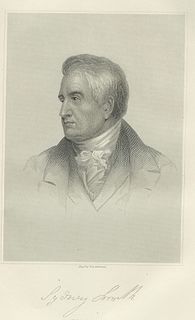A Quote by Bryant H. McGill
The secret to discovery is to never believe existing facts.
Related Quotes
The Most Secret Quintessence of Life is an original work filled with rich, new research, relying on important primary literature which has not, until now, been plumbed and digested. In this book, Chandak Sengoopta offers both a history of hormone discovery and a chronicle of how this discovery transformed our concepts of the body and how our existing concepts of sex and sexuality, in turn, informed our concepts for understanding hormones.
Many, and I think the determining, constitutive facts remain outside the reach of the operational concept. And by virtue of this limitation this methodological injunction against transitive concepts which might show the facts in their true light and call them by their true name the descriptive analysis of the facts blocks the apprehension of facts and becomes an element of the ideology that sustains the facts. Proclaiming the existing social reality as its own norm, this sociology fortifies in the individuals the "faithless faith" in the reality whose victims they are.
What are the facts? Again and again and again – what are the facts? Shun wishful thinking, ignore divine revelation, forget what “the stars foretell,” avoid opinion, care not what the neighbors think, never mind the unguessable “verdict of history” – what are the facts, and to how many decimal places? You pilot always into an unknown future; facts are your single clue. Get the facts!
I take facts about reasons to be fundamental in two ways. First, I believe that facts about reasons are not reducible to or analyzable in terms of facts of other kind, such as facts about the natural world. Second, I believe that reasons are the fundamental elements of the normative domain, and other normative notions, such as goodness and moral right and wrong can be explained in terms of reasons.
[The scientist] believes passionately in facts, in measured facts. He believes there are no bad facts, that all facts are good facts, though they may be facts about bad things, and his intellectual satisfaction can come only from the acquisition of accurately known facts, from their organization into a body of knowledge, in which the inter-relationship of the measured facts is the dominant consideration.
The agnostic, the skeptic, is neurotic, but this does not imply a false philosophy; it implies the discovery of facts to which he does not know how to adapt himself. The intellectual who tries to escape from neurosis by escaping from the facts is merely acting on the principle that “where ignorance is bliss, ‘tis folly to be wise.



































